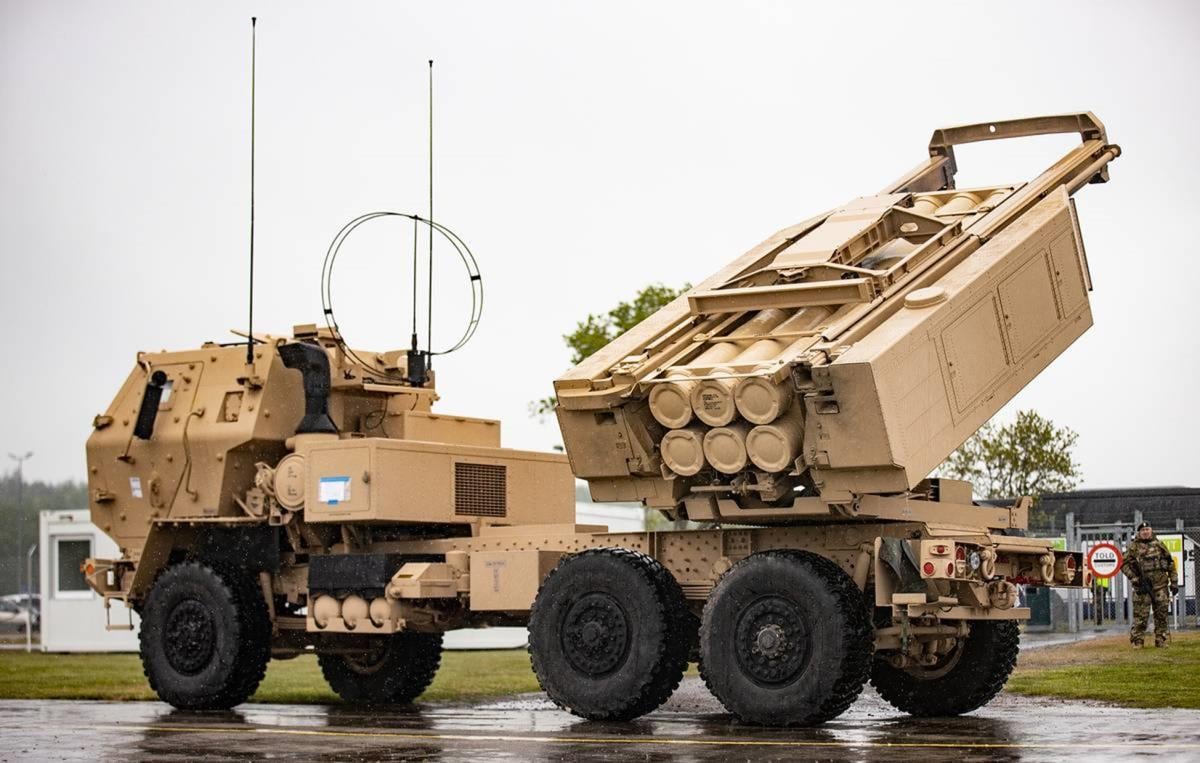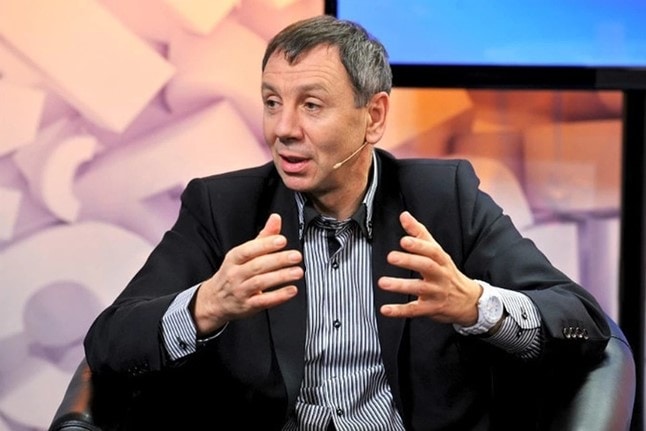Despite the crackdown on dissent in Russia, criticism of the military conduct of the war in Ukraine remains permitted as opposed to criticism over the war's morality or justification. The website Military Review (Topwar.ru) has been critical of the way that the war has been handled and the flawed assumptions upon which Russian strategy was based. Viktor Biryukov, who frequently contributes military analysis has previously called out the experts on Russian talk shows, who promised a walk in the park in Ukraine, and accused them of pandering to the politicians: " The abundance of political experts on television and in the Internet media, who talk about the future and make various, often loud, forecasts, today is amazing. However, few people thought about the quality of these forecasts and the extent to which these experts give adequate estimates. After all, journalists almost never ask them to compare their forecasts with what actually happened...
Often we can read high-profile predictions that are actually made 'out of the blue', not supported by facts and driven by the desire of an expert, for example, to flatter the political leadership. Or, to put it another way, the intention to give such a forecast that management wants to hear. After all, it must be admitted that most of the forecasts that we are now seeing in the media are not aimed at actually predicting the future, but are made only in order to assure the public that everything will happen according to the expected scenario and that all hopes and expectations will be justified. Quite often, in such cases, an illusory picture is created that can mislead, and, as practice shows, not only ordinary citizens.[1]Back in April Biryukov stressed that "Constructive criticism of concrete problems is not a labor on 'the enemy's behalf' but a necessity."[2]
In his most recent article, Biryukov predicts that the operational pause in Russia's offensive operations will lead at best to a positional stalemate reminiscent of the Western Front during the First World War. The Russian strategy of wearing down the Ukrainian Army is also wearing down Russia's resources. Without mobilization and putting industry on a war footing, Russia lacks the capacity to mount any offensive actions. Biryukov's analysis follows below:[3]

The American High Mobility Artillery Rocket System (HIMARS) that has blunted Russia's artillery superiority.
"The operational pause in Allied operations [the breakaway regions of Luhansk and Donetsk are considered Russia's allies] in Ukraine drags on: despite recent statements about the build-up of group operations in all operational areas within Ukraine, there have been no developments so far, and no serious offensive operations have been conducted by both the Russian and LDPR troops [i.e., the LPR and the DPR]. The current situation on the Ukrainian front is increasingly reminiscent of the situation on the Western front in 1915-1916, i.e. it’s “war of attrition.”
"Why does the operational pause threaten to become a positional stalemate? Let’s try to answer this question.
"Results Of The First And Second Phases Of The SVO [Special Military Operation]
"Regarding the first stage of the SVO in Ukraine, one can state that it didn’t go well, notwithstanding the bravura statements by the politicians about its successful completion. This is not just my opinion, as the well-known Russian political analyst, Sergei Markov, for example, adheres to the same opinion on the situation.
"'The first stage of the SVO in Ukraine concluded with the Russian army achieving a breakthrough along key directions prescribed for the Russian during the offensive to reach key areas and approaching major cities, i.e. Kyiv, Kharkiv, Chernihiv, Poltava, Mykolayiv and Kherson. It was assumed that the clashes in these cities would lead to the collapse of Ukraine’s system of state power, facilitate the creation of a power vacuum that would be filled by former Ukrainian politicians, who were forced to leave for Russia after 2014, such as Oleg Tsarev, repressed Ukrainian politicians like those from Viktor Medvedchuk’s team, unprincipled people from Zelensky’s team who would defect to the new government, as well as generals and security officers.
SUPPORT OUR WORK

"'However, the first stage [of the SVO] has failed; it was only 20% complete: the Russian Army managed to reach the major cities and even capture Kherson. But there was no collapse of Ukrainian state power. It continued to function and the security forces remained loyal to the Kyiv regime. What’s more, the Russian Spetsnaz [i.e., special forces] troops that had leaped ahead found themselves under severe flank attacks and sustained substantial losses,' said Sergei Markov.
"The general mobilization in the LPR and DPR, which, as I have repeatedly pointed out in previous articles, covered teachers, students, miners, etc., and was conducted primarily to pin down the main ZSU forces in Donbass, so that the adversary wouldn’t redeploy them near Kyiv. However, it wasn’t possible to achieve its goals. Therefore, the priorities of the SVO have changed to an extent, and politicians, instead of de-militarizing and de-nazifying Ukraine, have started talking about the liberation of Donbass, as a priority goal.
"In fact, the second stage of the SVO (which, as some experts correctly point out, after the failure of the first stage, essentially, turned into a real war) took place under the aforementioned slogan. However, despite the liberation of the entire LPR territory and the tactical successes achieved, the defeat of the ZSU's main forces in Donbass wasn't accomplished. Furthermore, the adversary continues to regularly bombard the DPR, and the cities of Donetsk and Horlivka were clobbered, as the ZSU positions, as previously [i.e. before the SVO] are essentially on the cities’ outskirts.
"The Russian Armed Forces’ tactic was to advance through enemy fortified areas by establishing a so-called 'barrage of fire,' i.e., by focusing a large quantity of artillery in a narrow section of the front and advancing after massive artillery softening. Ukraine’s US and British mentors responded by supplying the ZSU with 'HIMARS' multiple rocket launchers, which started to inflict painful strikes on ammunition depots and supply bases, striving to deprive the Russian Armed Forces of this [artillery] advantage. And they partly succeeded in this task.
"Why Do The Allied Forces Face A Positional Stalemate?
"Russia is trying to make war with less manpower than Ukraine and relying on an artillery advantage. German General, Erich von Falkenhayn used roughly the same tactics on the Western Front during World War I, as I recently wrote about in my piece 'Erich von Falkenhayn and His Strategy of Limited Force Warfare with a Decisive Objective' (anyone concerned can read it). I’m just emphasizing that this tactic didn’t do the German army any good.
"An attempt to 'grind' the Ukrainian army and 'wear it down' can lead Russia into a trap, because the 'grinding' is always a mutual process. In fact, the situation is already such that it is very problematic for the Russian Armed Forces and the People’s Militias of LDPR to conduct offensive operations, due to a shortage of infantry.
"This was also noted by Igor Strelkov, a reserve FSB colonel, who claims that 'on our side of the front, we, alas, have almost no troops to advance with. In all respects.' One can discount this as the colonel’s pessimism (although his forecasts, as experience demonstrates, have habitually been fulfilled), but we do, in fact, see that the allied forces are no longer conducting any offensive operations. The capture of the city of Seversk, which has been announced twice already, is still delayed, because the ZSU is not retreating, but is building up reserves and reinforcing their positions.
"Political analyst Sergei Markov, who has a fairly balanced approach to forecasts about the SVO in Ukraine, is not convinced by some experts’ assertions that the ZSU's military potential has been undermined, and that the front line will soon collapse.
"'There are two positions, one is that the cadre potential of the ZSU is largely undermined and, thus, Ukraine is forced to throw into combat poorly trained reservists. The second point of view argues to the contrary that recently mobilized reservists are being thrown into battle to preserve Ukraine’s regular army, which is deployed predominantly in the west, where it is undergoing refitting with Western weapons and retraining. And the goal of this is to prepare a counter-offensive around August-September, after the Russian army will be considerably attrited in bloody fighting. Then supposedly one or two counter-attacks by the Ukrainian army, equipped with the latest Western arms systems, supported by Western PMCs will allegedly happen.'

Sergey Markov (Source: Radiokp.ru)
"The second option that Markov mentioned is quite likely. Relying solely on artillery advantage with fewer infantry than the ZSU is extremely dangerous. This might work for a while, but sooner or later a situation will appear when it will become simply impossible to attack with such forces. De facto, it’s already the case. The US, the UK and their allies are supplying Kyiv with as much arms, as it needs to prevent the Russian Armed Forces from carrying out serious offensive operations without conducting mobilization.
"There is an opinion that Russia is capable of reaching a victory even without mobilization and putting industry on a war footing, but it can't withstand a collision with reality. So far, the allied forces aren’t even able to liberate Donbass, and the military conflict is close to a 'hot freeze.' The ZSU, for their part, are preparing for counteroffensive, supervised by their Western 'partners.'
"Even assuming that all of them will be successfully repelled, with the current balance of forces, the war may conclusively assume the nature of a positional conflict and the front line will stabilize in its current configuration."




